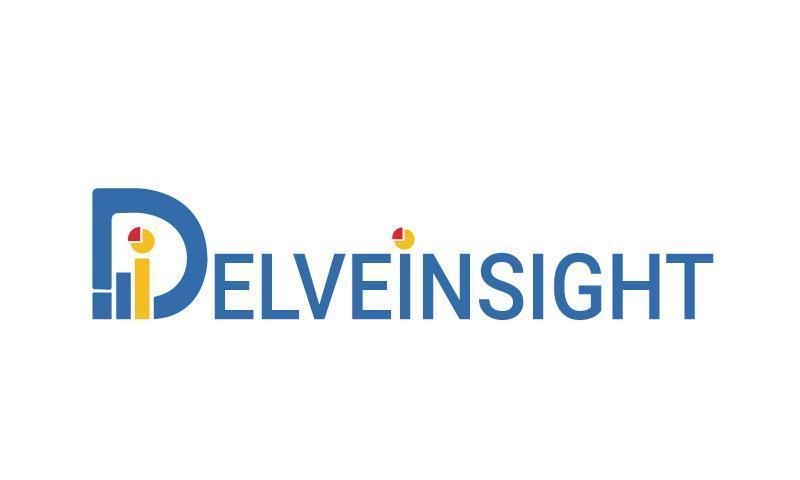In 2023, the US had the largest market size of dilated cardiomyopathy among the 7MM, accounting for approximately USD 329.4 million. This is expected to increase further by 2034.
Cardiomyopathy is a broad term that encompasses disorders of the cardiac muscle, leading to mechanical or electrical dysfunction and resulting in dilated, hypertrophic, or restrictive pathophysiology. According to the National Organization for Rare Disorders (NORD), dilated cardiomyopathy specifically affects the heart's main pumping chamber, the left ventricle.
This is the most common type of cardiomyopathy, typically affecting individuals aged 20-60. The heart muscle struggles to contract normally, potentially leading to irregular heartbeats (arrhythmias), blood clots, or sudden death. Over time, the heart weakens, often resulting in heart failure.
In its early stages, dilated cardiomyopathy may be asymptomatic. Symptoms can progressively worsen or rapidly escalate to severe heart failure. Common symptoms include shortness of breath during exercise, fatigue, leg swelling, coughing, and abnormal heart rhythms. While the exact cause is often unknown (idiopathic), several risk factors have been identified, including genetic, environmental, and lifestyle factors such as substance abuse and exposure to certain chemotherapeutic agents.
Dilated Cardiomyopathy Market Insights:
Currently, the treatment of dilated cardiomyopathy primarily involves pharmacological therapy, pacing therapy, surgical options, and the use of CORLANOR (ivabradine).
Pharmacological Therapy:
1. Diuretics: Commonly prescribed diuretics include furosemide, spironolactone, bumetanide, and metolazone. These help manage fluid retention but can cause side effects such as dehydration and potassium loss.
2. Inotropic Agents: These include digoxin, dobutamine, dopamine, epinephrine, norepinephrine, vasopressin, and milrinone. These medications help strengthen the heart's contractions.
3. Afterload-Reducing Agents: Angiotensin-converting enzyme inhibitors (ACE inhibitors) such as captopril, enalapril, lisinopril, and monopril, and angiotensin I blockers like losartan. Milrinone, an inotropic agent, also helps relax the arteries.
4. Beta-Blockers: These include medications like carvedilol and metoprolol, which help manage heart rate and reduce blood pressure.
5. Anticoagulation Medications: Warfarin, heparin, and enoxaparin are used to prevent blood clots but require regular blood testing to monitor their effects.
6. Anti-Arrhythmia Medications: These are used to control irregular heartbeats.
Symptom-Based Therapy:
Non-pharmacological approaches include patient education, reducing salt and water intake, and engaging in moderate physical exercise. Pharmacological approaches typically start with a combination of ACE inhibitors or angiotensin receptor blockers (ARBs) and beta-blockers. If symptoms persist and left ventricular ejection fraction (LVEF) remains ≤35% after three months, a mineralocorticoid antagonist is added. If higher doses of ACE inhibitors or ARBs are tolerated but symptoms continue, the combination of sacubitril (a neprilysin inhibitor) and valsartan may be considered. This combination has shown significant reductions in mortality and hospitalization due to heart failure compared to enalapril.
Invasive Therapies:
1. Implantation of Defibrillators: Recommended if LVEF remains ≤35% despite maximum tolerated doses of heart failure medications.
2. Cardiac Resynchronization Therapy (CRT): Helps synchronize the contractions of the left and right ventricles, improving cardiac function and reducing morbidity and mortality. CRT is recommended for patients with sinus rhythm, LVEF ≤35%, left bundle branch block, and a QRS duration of ≥150 ms.
Key Dilated Cardiomyopathy Companies In The Market:
Key Dilated Cardiomyopathy companies in the market include Pfizer, Capricor Therapeutics, MyoKardia, Cumberland Pharmaceuticals, Berlin Cures, and others.
Explore the latest insights on the Dilated Cardiomyopathy Market. Stay informed for better treatment options. Visit now @ https://www.delveinsight.com/sample-request/dilated-cardiomyopathy-market-forecast
Dilated Cardiomyopathy Epidemiology:
As the market analysis utilizes a patient-based model, the epidemiology chapter on dilated cardiomyopathy in the report provides both historical and forecasted data. This includes segmentation by total prevalent cases, total diagnosed prevalent cases, gender-specific cases, and familial versus non-familial cases of dilated cardiomyopathy. The analysis covers the 7MM, which includes the United States, the EU4 countries (Germany, France, Italy, and Spain), the United Kingdom, and Japan, spanning from 2020 to 2034.
Dilated Cardiomyopathy Market Forecast 2034:
The Dilated Cardiomyopathy market is undergoing a transformative period, driven by advances in research, innovation in therapeutic approaches, and shifting treatment paradigms. While significant progress has been made in improving outcomes for patients with Dilated Cardiomyopathy, several barriers continue to challenge the market's expansion, including high treatment costs, safety concerns, and regulatory hurdles. Looking ahead, personalized medicine, novel therapeutic targets, and digital health solutions are poised to shape the future of Dilated Cardiomyopathy management, offering new hope for patients and caregivers alike. Efforts to address these challenges and capitalize on emerging opportunities will be critical in advancing the field and ultimately improving the lives of individuals living with Dilated Cardiomyopathy.
Explore the detailed Market Insight report on Dilated Cardiomyopathy for valuable insights to make informed decisions @ https://www.delveinsight.com/sample-request/dilated-cardiomyopathy-market-forecast
Table of Contents
1. Report Introduction
2. Executive Summary
3. SWOT analysis
4. Dilated Cardiomyopathy Patient Share (%) Overview at a Glance
5. Dilated Cardiomyopathy Market Overview at a Glance
6. Dilated Cardiomyopathy Disease Background and Overview
7. Dilated Cardiomyopathy Epidemiology and Patient Population
8. Country-Specific Patient Population of Dilated Cardiomyopathy
9. Dilated Cardiomyopathy Current Treatment and Medical Practices
10. Unmet Needs
11. Dilated Cardiomyopathy Emerging Therapies
12. Dilated Cardiomyopathy Market Outlook
13. Country-Wise Dilated Cardiomyopathy Market Analysis (2020–2034)
14. Market Access and Reimbursement of Therapies
15. Market drivers
16. Market barriers
17. Appendix
18. Dilated Cardiomyopathy Report Methodology
19. DelveInsight Capabilities
20. Disclaimer
21. About DelveInsight
About DelveInsight
DelveInsight is a leading Healthcare Business Consultant, and Market Research firm focused exclusively on life sciences. It supports Pharma companies by providing comprehensive end-to-end solutions to improve their performance.
It also offers Healthcare Consulting Services, which benefits in market analysis to accelerate the business growth and overcome challenges with a practical approach.
Media Contact
Company Name: DelveInsight Business Research LLP
Contact Person: Kritika Rehani
Email:Send Email
Phone: +14699457679
Address:304 S. Jones Blvd #2432
City: Las Vegas
State: Nevada
Country: United States
Website: https://www.delveinsight.com/

